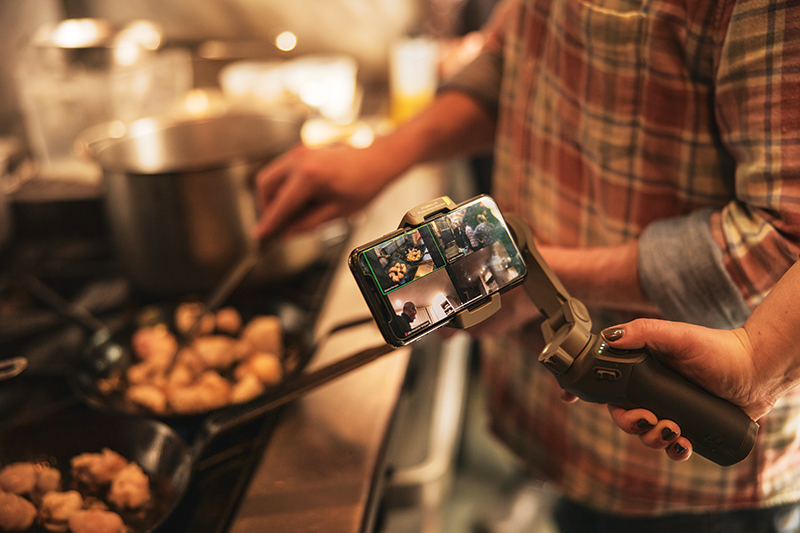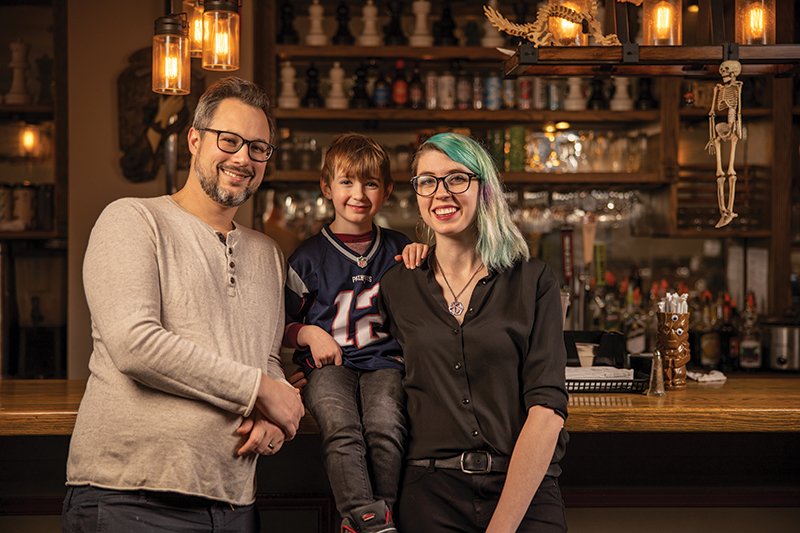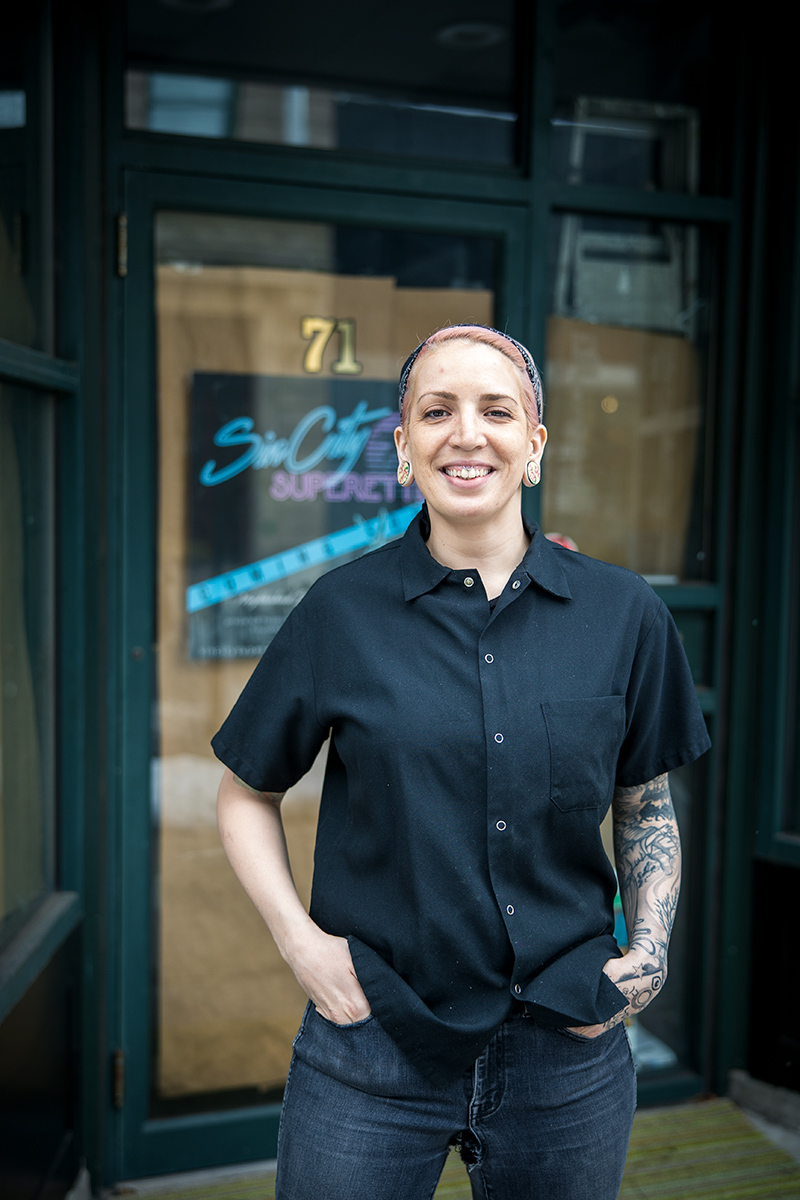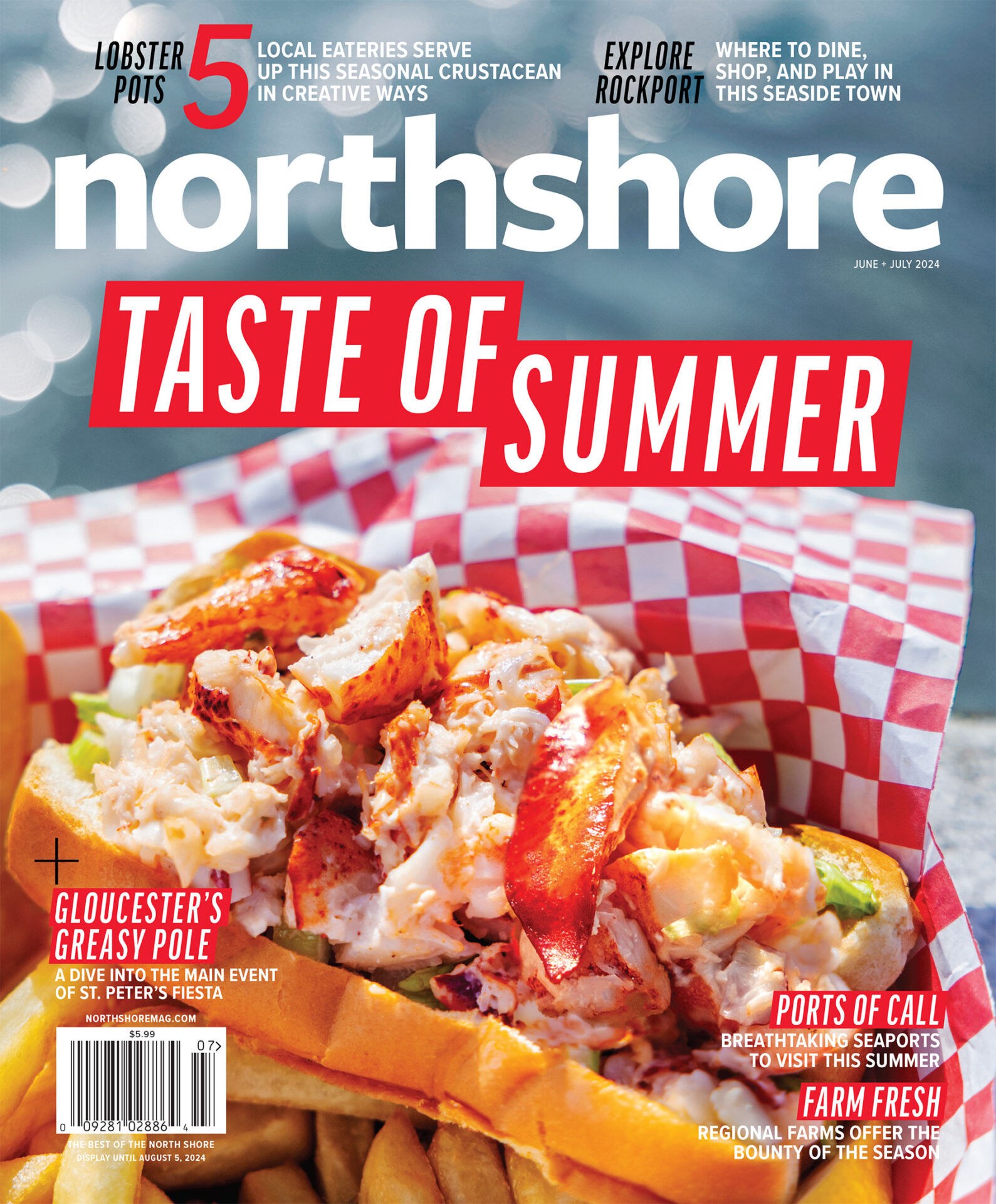Over a single week in March 2020, nearly every plan at Topsfield Bakeshop was wiped from the calendar. The 15-year-old store, which operates the wildly popular Whoo(pie) Wagon—a fixture at area festivals, corporate events, and colleges—saw its schedule vanish, including the bakery’s thriving wedding cake business, in an unexpected instant. This, at a time when owners Mary and Chris Bandereck were in the home stretch of building an expanded facility with extensive kitchen space on Route 1 in Topsfield.
“We were in too deep to turn around,” Mary says of the construction project. “We had to figure something out or we’d lose everything.”
They were far from alone—all across the North Shore, and really around the world, successful businesses were suddenly fighting for their lives. The solutions have taken on a lot of different looks—everything from selling flour and toilet paper to teaching cooking classes on Zoom has helped places survive the pandemic.

For Topsfield Bakeshop, the saving grace was adding savory meals—soups, chicken pot pies, and other comfort foods—which kept them going while they ramped up mail order and started driving their Whoo(pie) Wagon anyplace it was requested.
“We’ve been saying yes to everyone and everything,” Mary says, noting that a pop-up at 3rd Ave. Burlington, combined with visiting places like the Cruiseport in Gloucester to deliver pre-ordered treats, has kept them afloat. “Anyone can call and have us come anywhere,” she notes, so their schedule is now packed with fundraisers for local foundations, small corporate events, and even drive-by birthday parties—events that would have been too small in the past to warrant rolling out the wagon.
Topsfield Bakeshop isn’t alone in launching the unimaginable over the course of the past year—just ask Matt O’Neil. The owner of Ledger Restaurant & Bar in Salem sold toilet paper and flour last spring, and has trotted out numerous other ideas, from selling grocery items as “Ledger Basket” to fast-food style burgers as “Ledger Jr.”

“I don’t know how many concepts we actually did since March, but it was a lot,” O’Neil says. “And every single time, it’s almost like opening a new restaurant.” After taking most of January off to regroup, Ledger launched yet another new concept O’Neil hopes will carry them through to the spring: a subscription-based prepared food service they’re calling “Ledger Basket Club.” For $400 per month, plus tax and tip, members will get to choose four different meal boxes, each feeding three to four people, with themes like tacos or brunch.
“It’s a fusion of other models we’ve seen—one that I think will work well with the Ledger style,” O’Neil says of the heat-and-eat meals, which include sides and dessert and are likely to generate a few days of leftovers to boot. “It’ll include a lot of fun stuff like having Ledger in your fridge all the time.”
Over at Paddle Inn in Newburyport, in addition to dine-in and take-out options, they are inviting patrons to do the cooking themselves, alongside chef/co-owner Suzi Maitland—virtually of course. Maitland launched Tuesday night Zoom cooking classes last spring, paused them while the weather was good and their tiny restaurant— built to encourage quite the opposite of social distancing—could take advantage of the city’s generous outdoor dining spaces. She returned to the classes in December, digging into her repertoire of international favorites to explore everything from homemade pita and saganaki on Greek night to El Salvadorian pupusas with curtido slaw.

“[Zoom classes] literally saved me during quarantine,” says Maitland. “As a chef, you’re supposed to just push through everything, and I didn’t know how to push through this.”
People sign up in advance, paying $75 for dinner for two, including beer or wine and a bag of ingredients—many already measured, but with enough prep required to make you feel like you’re cooking something. Pick up is Mondays, and the live class is Tuesday evenings.
“Teaching is the fun part,” Maitland says, noting that the preparation is pretty intense, from choosing a theme to scaling down recipes for home cooks—and making sure they work. “I really like the feeling of having a big social gathering. There’s a lot of energy—you can see everyone running around [in their kitchens through Zoom windows].”
Zoom has also become an important tool at The Castle: A Board Game Café in Beverly, where Monday night trivia has moved online. “We put it off for a while, afraid it wouldn’t be as fun as in person, but it’s actually been really great,” says Ryn Grant, who owns the café with her husband Kevin. The pair serve as quiz masters, and give groups their own virtual breakout rooms to chat and discuss their answers. “It’s just nice to see folks,” she adds. “Plus, since its virtual, we have Castle supporters from all over the country tune in.”

In addition to Zoom trivia, the café now offers an online retail site, where people can purchase board games and accessories hand-selected by the Grants. The café is open with very limited seating (one group per room), but Ryn says the majority of patrons prefer take-out these days—accompanied oftentimes by board games they can rent alongside food orders.
Takeout is the only option at Nightshade Noodle Bar in Lynn—the pint-sized dining room doesn’t really lend itself to social distancing, notes chef/owner Rachel Miller. It was especially painful, as the restaurant had debuted just a few months before to glowing reviews. To augment that income while serving the community, Miller has been selling breakfast sandwiches as a preview to her new venture, Sin City Superette—a miniature version of a traditional grocery store, with all the same departments, including hot and cold prepared foods, baked goods, and household staples, all at affordable prices.

“Options in this neighborhood were very limited and I was really inspired to do something about it,” says Miller, who expects to open by this spring. “Nightshade’s price points (and niche) disenfranchise many members of the community, especially in this climate. My team and I are capable of making a bigger, more important impact for this community [while] still growing as chefs and hospitality professionals.”
Sin City Superette has been functioning as a popular breakfast pop-up weekday mornings at Nightshade, while construction continues on the new site, and Miller is excited about the potential. “I want to create jobs, save the jobs I already have at Nightshade, pay living wages, and also have a revenue center that can feed Nightshade if we ever end up in another crisis,” she says.
Miller’s sentiment is echoed across the board, as businesses hope that their constant reinventions will be enough to get them through the next few months.
As Ledger’s O’Neil put it, probably speaking for everyone on the North Shore: “The whole key is getting to spring.”

